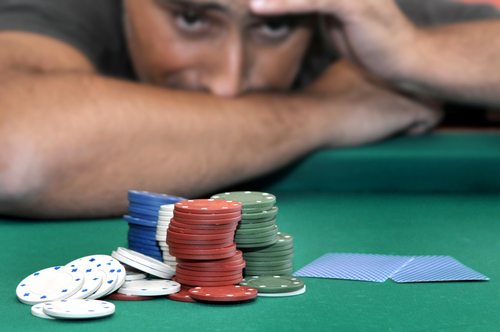Compulsive gambling can be a silent killer because addiction to gambling does not always stand out to those around a person with addiction. The signs of gambling addiction are often overlooked. Learn some of the potential signs of gambling addiction and how to seek help for oneself or an individual in the family or close circle of friends who may be struggling.
Obsession
One of the most common signs of gambling addiction is an obsession with it. Gambling addiction creates an obsession and preoccupation with gambling to the point nothing else matters. Compulsive thoughts can create a desire to gamble even if the person tries to stop.
Unable to Quit
The inability to quit even when the desire exists is one of many signs of gambling addiction. Many people with addiction tend to overlook this sign as one that something is wrong and needs immediate attention.
Consequences
Gambling problems in a person’s life may include financial difficulties, loss of a job or relationship problem. Many people with addictions tend to get overlooked by loved ones as the consequences pile up.
Withdrawal
One of the signs is similar to drug or alcohol addiction where a person tries to stop gambling and, psychologically, finds it difficult if not impossible to deal with the emotional withdrawal and needs to gamble to feel happy.
Improved Happiness
When a person needs gambling to feel satisfied or happy, this is a problem that needs to be addressed. Gambling can mask problems and create more issues than it solves.
Stealing
Breaking the law, theft or other legal problems can arise when a person tries to fuel a habit for gambling. Addiction to gambling should not be overlooked as it may lead to jail time, probation or other consequences which can impact the rest of a person’s life.
Denial of Problem
Denial is a sign of addiction and to state no problem exists is detrimental to a person’s life. If a loved one is suspected of having a problem, it helps to come up with hard evidence and proof to confront the individual and help that person seek counseling.
Financial Problems
Financial issues may result from gambling. A friend can suddenly have issues with money and compulsive gamblers depend on others to give money to pay expenses lost to gambling.
Mood Swings
Compulsive gambling creates a double life where friends and family are unaware and may lead to excessive mood swings. Often overlooked, this is one of the early signs of addiction.
Hiding
When an individual tries to hide the consequences of gambling or the behavior itself it is one of the common signs. Hiding behavior can be hard to spot if a person doesn’t know what to look for but hiding behavior can be helped by recognizing it is wrong to gamble behind loved one’s backs and can result in a positive turn of events: seeking help.
The Villa believes everyone has the power to change behavior. If you are looking to quit gambling addiction, give us a call. Let us help guide you to the necessary resources and information to help you quit.

